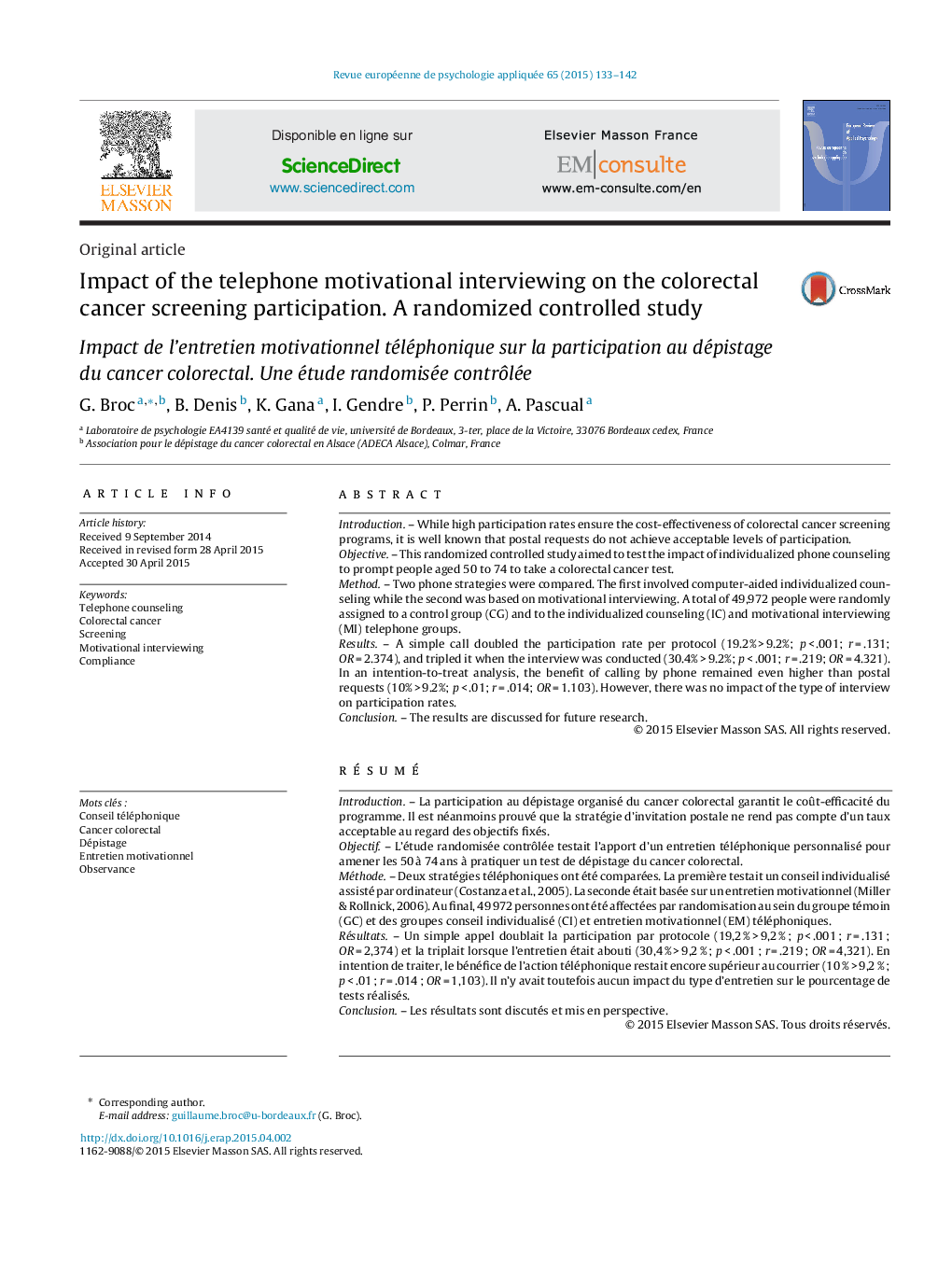| Article ID | Journal | Published Year | Pages | File Type |
|---|---|---|---|---|
| 895436 | Revue Européenne de Psychologie Appliquée/European Review of Applied Psychology | 2015 | 10 Pages |
IntroductionWhile high participation rates ensure the cost-effectiveness of colorectal cancer screening programs, it is well known that postal requests do not achieve acceptable levels of participation.ObjectiveThis randomized controlled study aimed to test the impact of individualized phone counseling to prompt people aged 50 to 74 to take a colorectal cancer test.MethodTwo phone strategies were compared. The first involved computer-aided individualized counseling while the second was based on motivational interviewing. A total of 49,972 people were randomly assigned to a control group (CG) and to the individualized counseling (IC) and motivational interviewing (MI) telephone groups.ResultsA simple call doubled the participation rate per protocol (19.2% > 9.2%; p < .001; r = .131; OR = 2.374), and tripled it when the interview was conducted (30.4% > 9.2%; p < .001; r = .219; OR = 4.321). In an intention-to-treat analysis, the benefit of calling by phone remained even higher than postal requests (10% > 9.2%; p < .01; r = .014; OR = 1.103). However, there was no impact of the type of interview on participation rates.ConclusionThe results are discussed for future research.
RésuméIntroductionLa participation au dépistage organisé du cancer colorectal garantit le coût-efficacité du programme. Il est néanmoins prouvé que la stratégie d’invitation postale ne rend pas compte d’un taux acceptable au regard des objectifs fixés.ObjectifL’étude randomisée contrôlée testait l’apport d’un entretien téléphonique personnalisé pour amener les 50 à 74 ans à pratiquer un test de dépistage du cancer colorectal.MéthodeDeux stratégies téléphoniques ont été comparées. La première testait un conseil individualisé assisté par ordinateur (Costanza et al., 2005). La seconde était basée sur un entretien motivationnel (Miller & Rollnick, 2006). Au final, 49 972 personnes ont été affectées par randomisation au sein du groupe témoin (GC) et des groupes conseil individualisé (CI) et entretien motivationnel (EM) téléphoniques.RésultatsUn simple appel doublait la participation par protocole (19,2 % > 9,2 % ; p < .001 ; r = .131 ; OR = 2,374) et la triplait lorsque l’entretien était abouti (30,4 % > 9,2 % ; p < .001 ; r = .219 ; OR = 4,321). En intention de traiter, le bénéfice de l’action téléphonique restait encore supérieur au courrier (10 % > 9,2 % ; p < .01 ; r = .014 ; OR = 1,103). Il n’y avait toutefois aucun impact du type d’entretien sur le pourcentage de tests réalisés.ConclusionLes résultats sont discutés et mis en perspective.
